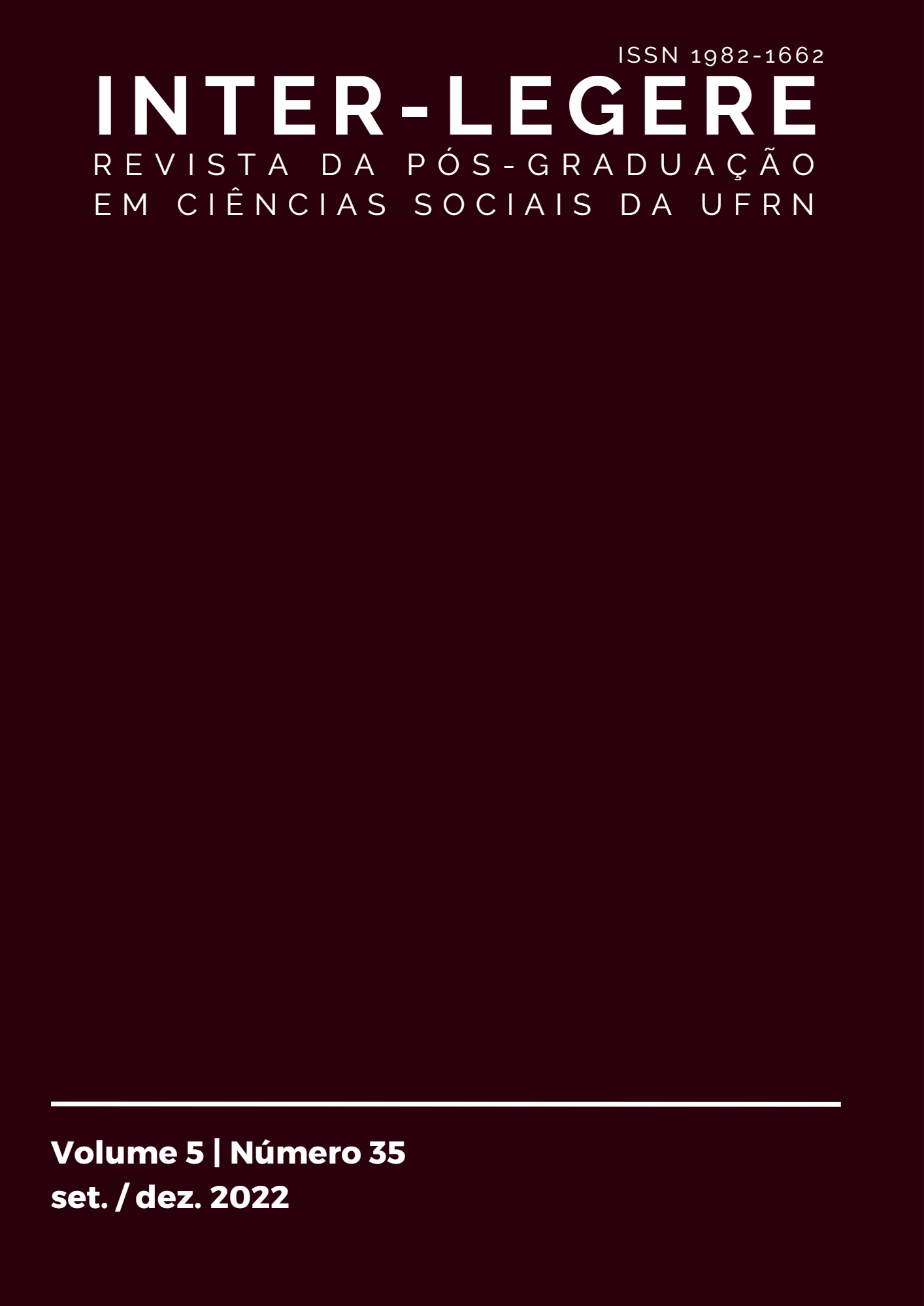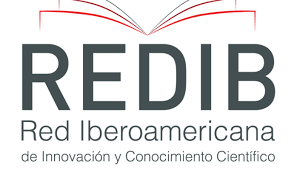In an Online Nutrition Education Program Delivered to University Students, Group Interaction was Key to Increasing Food Literacy
DOI:
https://doi.org/10.21680/1982-1662.2022v5n35ID29170Palabras clave:
Online Social Networking, Literacy, Sustainable Development, Higher Education, Social GroupResumen
Our goal was to test an online nutrition education program delivered using social media platforms on the food literacy levels of university students. We experimented with students from universities in northeastern Brazil, organized into three groups: an intervention group (A), which accessed the program content on social media platforms and participated in online activities as a group; a positive control group (B), which only accessed the content of our program on social media platforms; and, finally, a negative control group (C). We applied to all groups a pre- and post-assessment questionnaire on food literacy self-perception. Within groups, the increase in food literacy score was significant only in group A (8.15 ± 13.98), demonstrating the effectiveness of our program. However, comparison among groups showed that accessing the content on social media platforms by itself had no effect on food literacy (group B: 4.88 ± 11.13 and C: 0.16 ± 5.88). Interaction in a small group was key to increasing food literacy. We hope our study can foster a better understanding of how online nutrition education programs are assessed, considering that metrics provided by social media platforms do not inform about educational outcomes.
Descargas
Citas
ALMEIDA, Shirley Pereira de; SOARES, Sônia Maria. Aprendizagem em grupo operativo de diabetes: uma abordagem etnográfica. Ciência & Saúde Coletiva, v. 15, n. suppl 1, p. 1123–1132, 2010. Disponível em: http://www.scielo.br/scielo.php?script=sci_arttext&pid=S141381232010000700020&lng=pt&tlng=pt.
AMOUZANDEH, Claudia; FINGLAND, Donna; VIDGEN, Helen Anna. A Scoping Review of the Validity, Reliability and Conceptual Alignment of Food Literacy Measures for Adults. Nutrients, v. 11, n. 4, p. 801, 2019. Disponível em: https://www.mdpi.com/2072-6643/11/4/801.
ANSARI, Jamal Abdul Nasir; KHAN, Nawab Ali. Exploring the role of social media in collaborative learning the new domain of learning. Smart Learning Environments, v. 7, n. 1, p. 9, 2020. Disponível em: https://slejournal.springeropen.com/articles/10.1186/s40561-020-00118-7.
AZEVEDO PERRY, Elsie et al. Identifying attributes of food literacy: a scoping review. Public Health Nutrition, v. 20, n. 13, p. 2406–2415, 2017. Disponível em: https://www.cambridge.org/core/product/identifier/S1368980017001276/type/journal_article.
BALATSOUKAS, Panos et al. The Role of Social Network Technologies in Online Health Promotion: A Narrative Review of Theoretical and Empirical Factors Influencing Intervention Effectiveness. Journal of Medical Internet Research, v. 17, n. 6, p. e141, 2015. Disponível em: http://www.jmir.org/2015/6/e141/.
BAUER, J. M.; REISCH, L. A. Behavioural Insights and (Un)healthy Dietary Choices: a Review of Current Evidence. Journal of Consumer Policy, v. 42, n. 1, p. 3–45, 2019. Disponível em: http://link.springer.com/10.1007/s10603-018-9387-y.
CHAU, Michelle M.; BURGERMASTER, Marissa; MAMYKINA, Lena. The use of social media in nutrition interventions for adolescents and young adults—A systematic review. International Journal of Medical Informatics, v. 120, p. 77–91, 2018. Disponível em: https://linkinghub.elsevier.com/retrieve/pii/S138650561830039X.
DELIENS, Tom et al. Determinants of eating behaviour in university students: a qualitative study using focus group discussions. BMC Public Health, v. 14, n. 1, p. 53, 2014. Disponível em: http://bmcpublichealth.biomedcentral.com/articles/10.1186/1471-2458-14-53.
FABER-BOOG, Maria Cristina. Educação em Nutrição: Integrando Experiências. Rio de Janeiro: Komedi, 2013.
GAYLIE, Veronica. The Learning Garden: Ecology, Teaching, and Transformation. Lausanne: Peter Lang, 2009.
HEITOR, Sara Franco Diniz et al. Tradução e adaptação cultural do questionário sobre motivo das escolhas alimentares (Food Choice Questionnaire – FCQ) para a língua portuguesa. Ciência & Saúde Coletiva, v. 20, n. 8, p. 2339–2346, 2015. Disponível em: http://www.scielo.br/scielo.php?script=sci_arttext&pid=S1413-81232015000802339&lng=pt&tlng=pt.
LOSS, Julika; LINDACHER, Verena; CURBACH, Janina. Online social networking sites—a novel setting for health promotion?. Health & Place, v. 26, p. 161–170, 2014. Disponível em: https://linkinghub.elsevier.com/retrieve/pii/S1353829213001767.
MCCONNELL, Meghan M.; MONTEIRO, Sandra; BRYSON, Gregory L. Sample size calculations for educational interventions: principles and methods. Canadian Journal of Anesthesia/Journal canadien d’anesthésie, v. 66, n. 8, p. 864–873, 2019. Disponível em: http://link.springer.com/10.1007/s12630-019-01405-9.
MEHTA, Kaye et al. A critical food system program in South Australia and the effects on consumer knowledge and attitudes. Health Promotion Journal of Australia, v. 32, n. 3, p. 467–474, 2021. Disponível em: https://onlinelibrary.wiley.com/doi/10.1002/hpja.370.
MOORHEAD, S Anne et al. A New Dimension of Health Care: Systematic Review of the Uses, Benefits, and Limitations of Social Media for Health Communication. Journal of Medical Internet Research, v. 15, n. 4, p. e85, 2013. Disponível em: http://www.jmir.org/2013/4/e85/.
MURIMI, Mary W et al. Factors that contribute to effective online nutrition education interventions: a systematic review. Nutrition Reviews, v. 77, n. 10, p. 663–690, 2019. Disponível em: https://academic.oup.com/nutritionreviews/article/77/10/663/5530657.
PETTIGREW, Simone et al. Evaluation outcomes of a long-running adult nutrition education programme. Public Health Nutrition, v. 19, n. 4, p. 743–752, 2016. Disponível em: https://www.cambridge.org/core/product/identifier/S1368980015001536/type/journal_article.
PODDAR, Kavita H. et al. Web-Based Nutrition Education Intervention Improves Self-Efficacy and Self-Regulation Related to Increased Dairy Intake in College Students. Journal of the American Dietetic Association, v. 110, n. 11, p. 1723–1727, 2010. Disponível em: https://linkinghub.elsevier.com/retrieve/pii/S0002822310013428.
SANTANA, Jerusa da Mota et al. Dietary intake of university students during COVID-19 social distancing in the Northeast of Brazil and associated factors. Appetite, v. 162, p. 105172, 2021. Disponível em: https://linkinghub.elsevier.com/retrieve/pii/S0195666321000805.
SIERO, F. W. Impact of group nutrition education and surplus value of Prochaska-based stage-matched information on health-related cognitions and on Mediterranean nutrition behavior. Health Education Research, v. 15, n. 5, p. 635–647, 2000. Disponível em: https://academic.oup.com/her/article-lookup/doi/10.1093/her/15.5.635.
SUMNER, Jennifer. Food Literacy and Adult Education: Learning To Read the World By Eating. Canadian Journal for the Study of Adult Education, v. 25, n. 2, p. 79–91, 2013.
VAITKEVICIUTE, Rimante; BALL, Lauren E; HARRIS, Neil. The relationship between food literacy and dietary intake in adolescents: a systematic review. Public Health Nutrition, v. 18, n. 4, p. 649–658, 2015. Disponível em: https://www.cambridge.org/core/product/identifier/S1368980014000962/type/journal_article.
VELLA-ZARB, Rachel A.; ELGAR, Frank J. The ‘Freshman 5’: A Meta-Analysis of Weight Gain in the Freshman Year of College. Journal of American College Health, v. 58, n. 2, p. 161–166, 2009. Disponível em: http://www.tandfonline.com/doi/abs/10.1080/07448480903221392.
VIDGEN, Helen Anna; GALLEGOS, Danielle. Defining food literacy and its components. Appetite, v. 76, p. 50–59, 2014. Disponível em: https://linkinghub.elsevier.com/retrieve/pii/S019566631400018X.
WILSON, Courtney K. et al. Self-reported food skills of university students. Appetite, v. 108, p. 270–276, 2017. Disponível em: https://linkinghub.elsevier.com/retrieve/pii/S0195666316305384.
Descargas
Publicado
Cómo citar
Número
Sección
Licencia
Derechos de autor 2022 Laura Brito Porciúncula, Joana Yasmin Melo de Araujo, Giuliana de Oliveira Lino, Elias Jacob de Menezes Neto, Sávio Gomes, Michelle Cristine Medeiros Jacob

Esta obra está bajo una licencia internacional Creative Commons Atribución-NoComercial-CompartirIgual 4.0.


 Português (Brasil)
Português (Brasil) English
English Français (Canada)
Français (Canada) Español (España)
Español (España)





